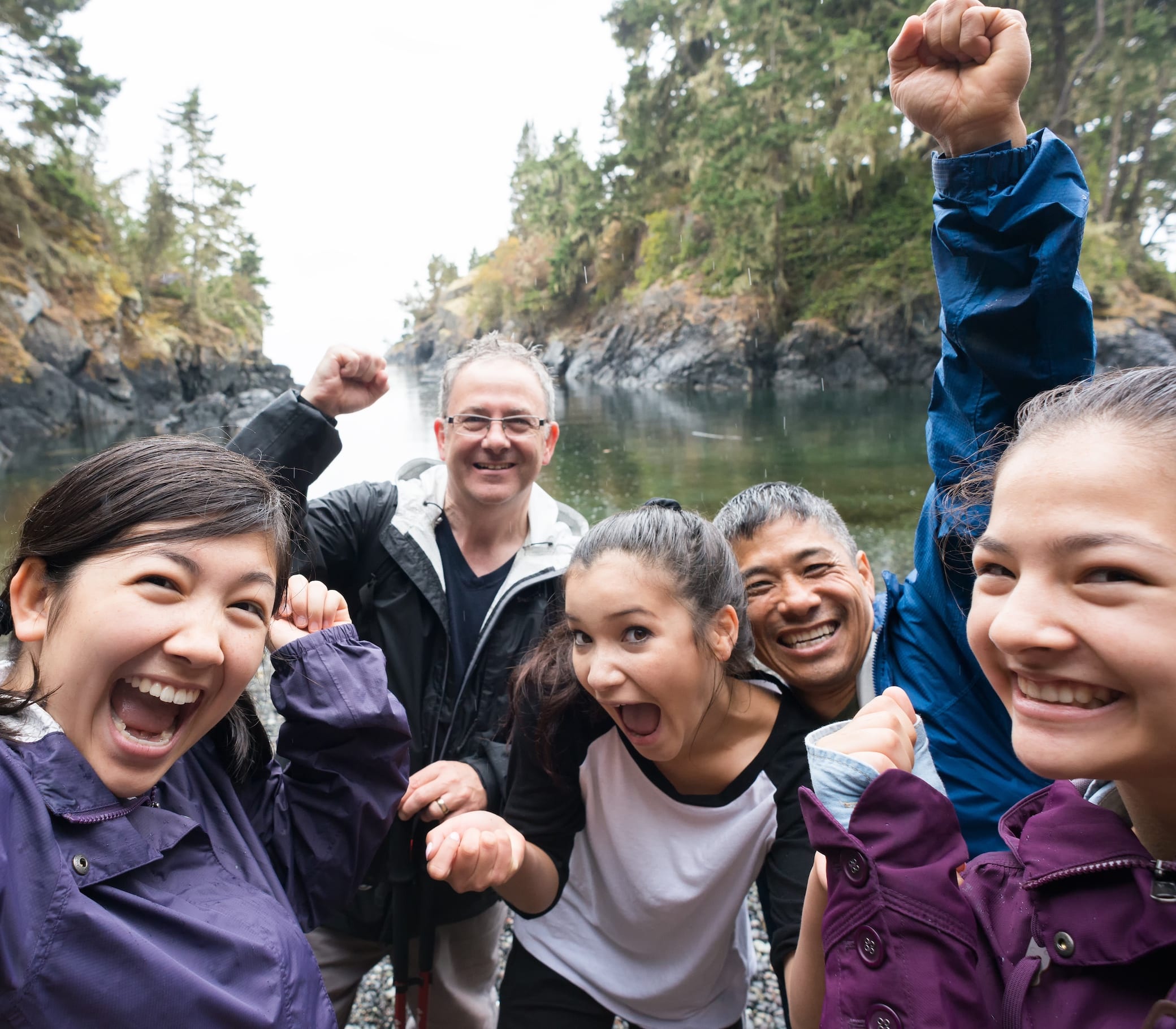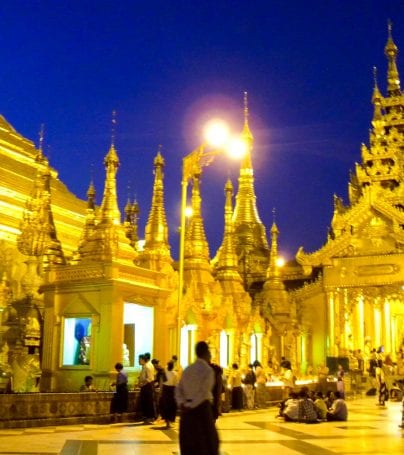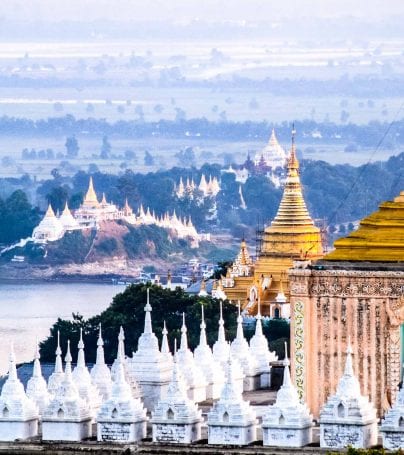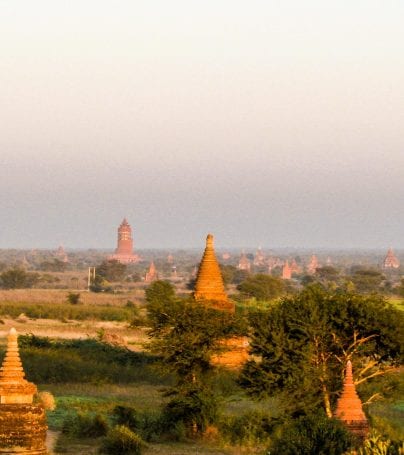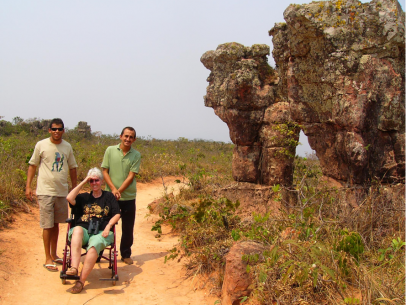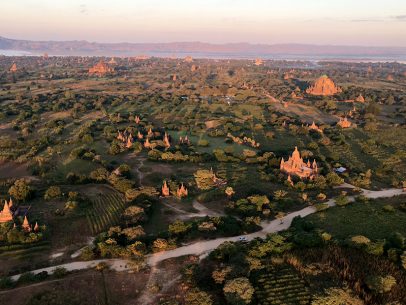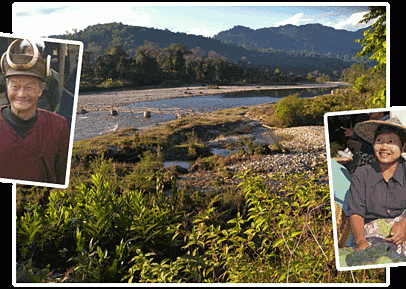Shwedagon Pagoda Adventure Tours
The Shwedagon Pagoda, officially titled Shwedagon Zedi Daw, also known in English as the Great Dagon Pagoda and the Golden Pagoda, is a 99 metres (325 ft)[citation needed] gilded pagoda and stupa located in Yangon, Burma. The pagoda lies to the west of Kandawgyi Lake, on Singuttara Hill, thus dominating the skyline of the city. It is the most sacred Buddhist pagoda for the Burmese with relics of the past four Buddhas enshrined within, namely the staff of Kakusandha, the water filter of Koṇāgamana, a piece of the robe of Kassapa and eight strands of hair of Gautama, the historical Buddha. Uppatasanti Pagoda is a same-sized replica of Shwedagon Pagoda in Naypyidaw, the new capital of Burma.
Visitors must remove their shoes before the first step at any of the entrances. The southern and eastern approaches have traditional shops with wide gradual staircases. In addition, these entrances have an elevator and the infrequently used western one is equipped with escalators. Burmese walk around the stupa clockwise (let ya yit). The day of the week a person is born will determine their planetary post, eight in all as Wednesday is split in two, a.m. and p.m. They are marked by animals that represent the day, galon (garuda) for Sunday (ta nin ganway), tiger for Monday (ta nin la), lion for Tuesday (in ga), tusked elephant for Wednesday a.m. (bouddahu), tuskless elephant for Wednesday p.m. (yahu), mouse for Thursday (kyatha baday), guinea pig for Friday (thaukkya) and naga (mythical dragon/serpent) for Saturday (sanay). Each planetary post has a Buddha image and devotees offer flowers and prayer flags and pour water on the image with a prayer and a wish. At the base of the post behind the image is a guardian angel, and underneath the image can be seen the animal representing the day. The base of the stupa is octagonal and also surrounded by small shrines, eight in number for each day of the week.
Most Myanmar people are Buddhist, at the same time believing astrology which originated from Hindu Brahmanism. It is very important for every Myanmar Buddhist people to recognize the day of their birth, such as Sunday, Monday, Tuesday, etc. Otherwise, he or she may not know which part of the pagoda platform to go and make special devotional acts either his or her desire or by the advice of Astrologer.
Myanmar astrology recognizes the seven planets, namely Sun, Moon, Mars, Jupiter, Mercury, Venus, and Saturn. In addition, it recognizes two other planets, Rahu and Ketu. All the Myanmar names of the planets are borrowed from Hindu astrology, but the Myanmar Rahu and Ketu are different from the Hindu Rahu and Ketu. Myanmar considers them to be distinct and separate planets, whereas Hindu astrology considers them to be either the Dragon’s Head and Tails, or Ascending and Descending Nodes. To the Myanmar people, Ketu is the king of all planets. As with other Nations the Myanmar name the seven days of their week after the seven planets, but Myanmar astrology recognizes an eight days week, Wednesday being divided into two days; until 6 p.m. it is Wednesday, but after 6.pm. to the midnight it is Rahu’s day.
The basic belief of Myanmar astrology is that the planets, except Ketu, mold a man’s fate. The planet of a man’s birthday will be the main guardian of his fate, but at each particular period of a man’s life, a particular planet throws upon him its baneful or its beneficial influence. For example, at one period of his life he will be under the influence of Saturn and ill-fortune will befall him, but at another period he will be under the influence of Venus and good fortune will result. Thus the ebb and flow of a man’s fortune depends on the paths in the sky of the planets.
Most Myanmar Buddhist approach an astrologer for something or another, whether to go ahead with a move to a new house or get married or pass exams or doing new business. The astrologer would do some calculations according to the magic formulas he alone knows and arrives at a certain conclusion. The astrologer would sometime say that he or she is under the bad influence of a certain planet and to counter this the clients should go to his or her birthday planetary post and pour a certain number of cups of water or place papier-mache umbrellas or flowers etc. as “yadaya” or to put it in English, a symbolic counter to avert the bad influences the subject is under currently or looming in the future by using the inherent powers in his or her offering plus some personal wishes. Or, the symbol of water in conjunction with the symbol of a planetary post will mean that he may send a Wednesday born to pour water at the Saturday corner, and so on. He alone knows the symbols connected to each and he alone can calculate on what day or time to do it, and where. And whoever does not want to avoid misfortune and bad luck just by pouring water at one’s planetary post and ensure one’s peace of mind and end of anxieties.
When Myanmar Buddhists go to the pagoda, they know in their hearts that they are treading the noble path to that state where the best of human nature will have a fair chance to manifest itself in deeds of generosity, loving-kindness, and compassion for one’s fellow beings.
Visits to pagodas are important to Myanmar Buddhists. The guiding force is faith in the efficacy of one’s own karmic deeds. For example, contemplation of the infinite compassion of Buddha, as one makes one’s way to Shwedagon’s great stupa, is a good karmic deed.
The pilgrim, on his way up the steps of the pagoda, buys flowers, candles, colored flags, and streamers. They are to be offered in honor of the great stupa wherein are enshrined the relics of Buddha. This act is the act of dana, or giving, an important aspect of Buddhist teaching. The donation boxes around the pagoda receive offerings large and small, given to the pagoda for general purposes. All donations are voluntary, from the smallest coin put into the box to the priceless jewels hung on the top of the pagoda. No fees are ever requested at the pagoda for use of the lifts or for the minding of footwear. The pilgrim can make whatever donation he chooses and may even make none if he wishes.
Customize Your Dream Adventure
We are here to help craft tailor-made adventures for individuals, couples, families, and groups of explorers.
